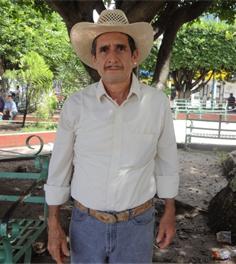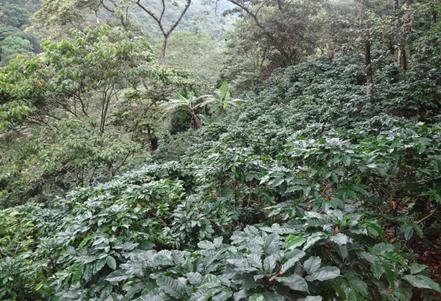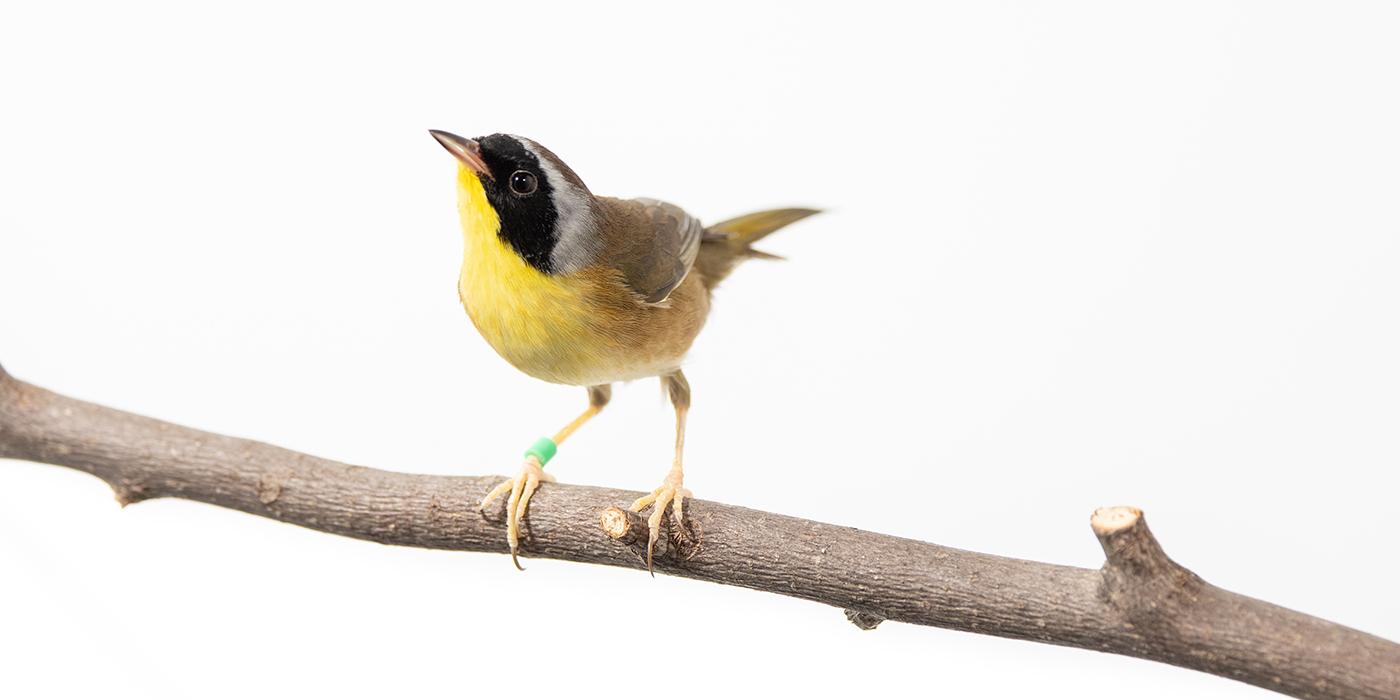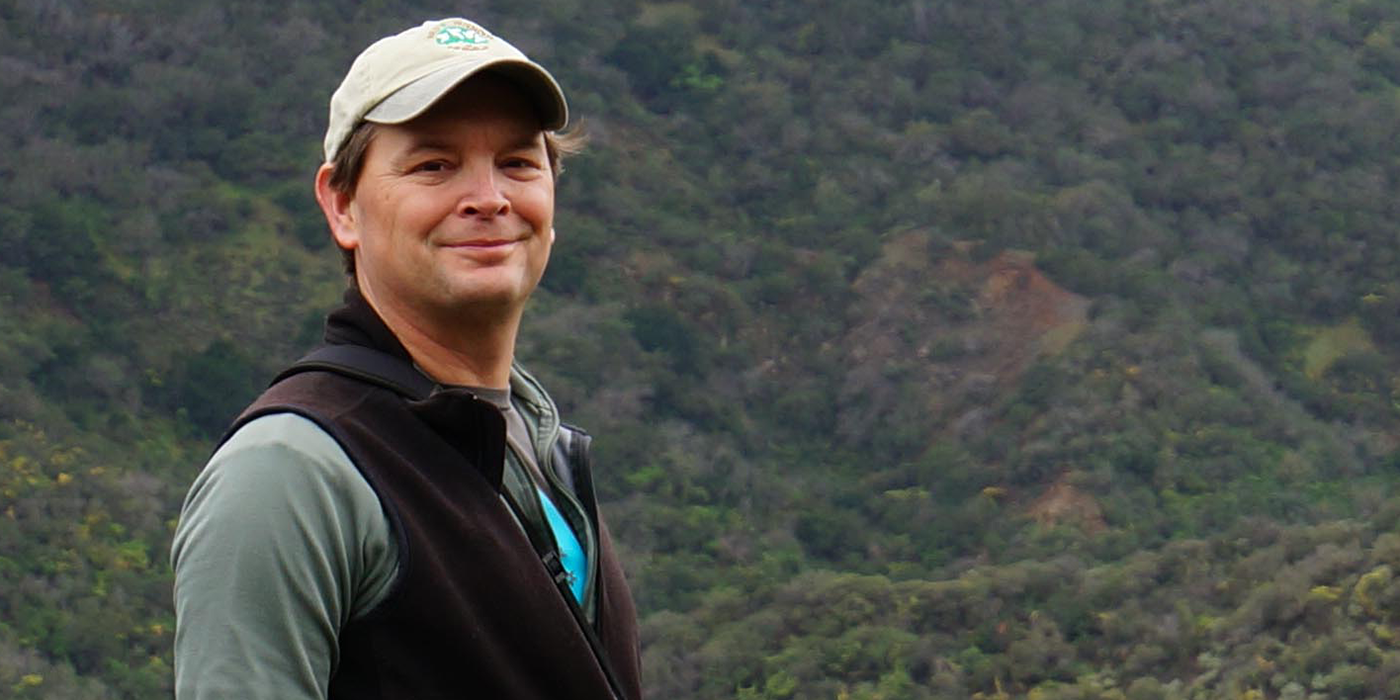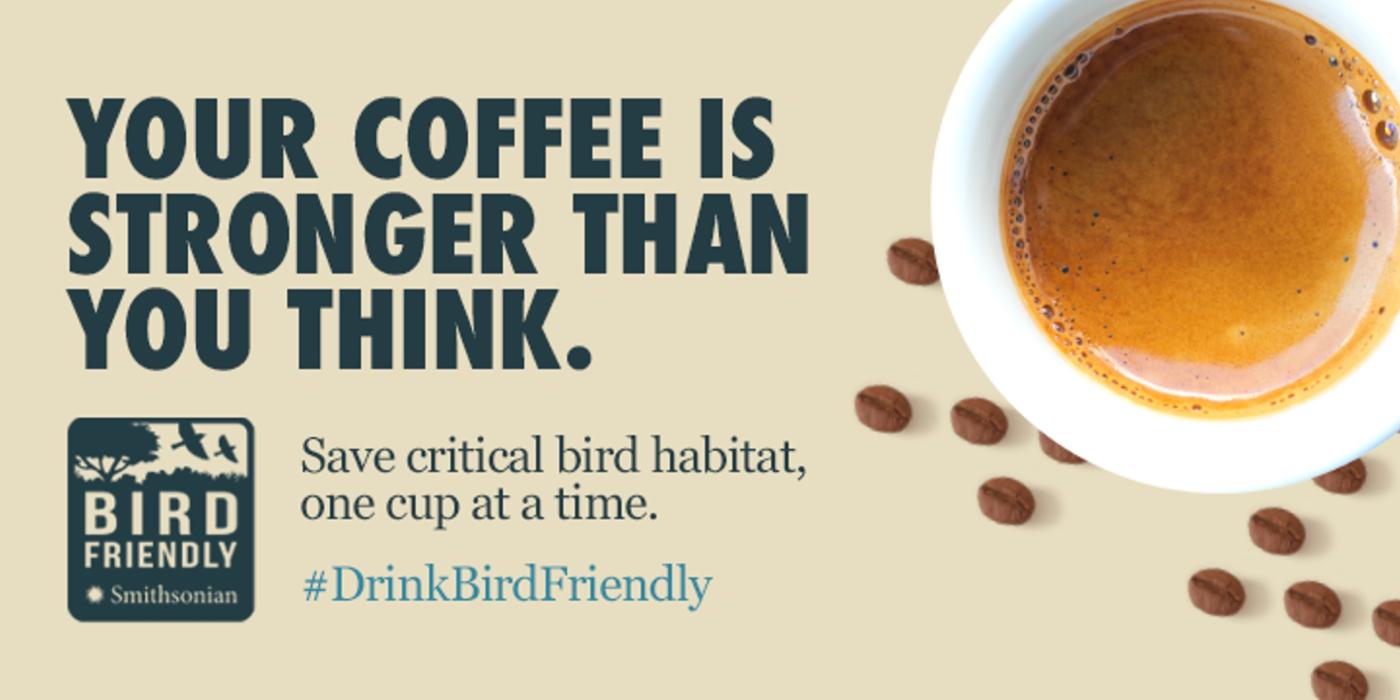Profiles in Courage and Habitat Protection Expedition Blog
Meet Sr. Victor Romeo Cobon
My name is Victor Romeo Cobón. I am 52 years old and have, since the age of 21, always dedicated myself to the production of coffee. My wife’s name is Veneda Mérida. She is 51 years old and has always helped me to better myself morally.
Since I was a child, I have worked as a famer helping to plant sugarcane. At the age of 21, I got into coffee with the help of my father-in-law. With time, I got to know Guaya’b, which I joined in order to improve my parcels and to obtain better prices. I’ve been a member of Guaya’b for nine years.
Thoughts About Certification
Through Guaya’b, we have received a lot of technical assistance and capacity, which helps us in terms of productivity, as well as improving the quality of our product. Moreover, we have received better prices for the work we do as organic producers. Personally, I have seen that being organic obliges us to manage our water and soil resources responsibly. We are contributing to leaving a better world for our kids.
The Tovar Family: Three Generations Providing Bird Friendly Coffee
Just east of Bogota, Colombia some 25 kilometers, the town of San Antonio del Tequendama is nestled on the western slopes of Colombia's eastern branch of the Andes. The department is Cundinamarca, which, while far behind in the total coffee area compared to those of Antioquia, Huila or Tolima, ranks first in the Colombian Coffee Federation's category for "traditional production technology".
Within this setting, the Tovar Chia family manages a farm called "La Pedregoza", producing Bird Friendly coffee on 3.7 hectares. Cupping assessments describe the coffee's flavor as smoothly sweet and delicate, with hints of caramel and almond. At 1625 meters above sea level with an average temperature of 18º C., this coffee clearly falls within the "specialty" line. Nearly all of it is roasted and sold locally, allowing the Tovar family to capture the value added in the process.
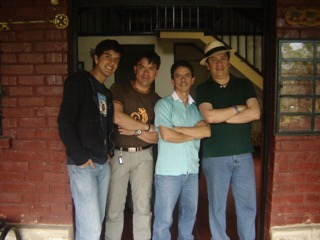
Listen to your mother: According to the farm administrator, Rafael Tovar, his mother, Blanca Delia, has been the motive force behind the sustainable management practices at La Pedregoza. "She is our leader, in effect the "big boss" (la jefa). She's a great woman, having been in charge of raising us and making my two brothers and me what we are today", says Rafael. Blanca Delia made it plain to the family that the farm would never use chemical products like pesticides, and she also decided that the family would continue to cultivate the historic arabica variety called "tipica". Rafael continues, "all of our efforts grow out of the nuclear family and our team of permanent workers, and it is our mother who guided the quest to obtain the Bird Friendly seal."
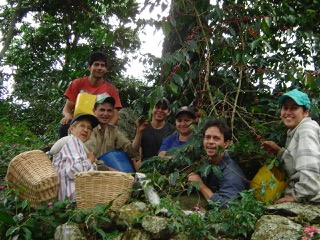
On the agro-eco tour circuit: The farm has enjoyed the status of a model farm of sorts, given the family's overall philosophy around conservation. Functionaries from the US embassy in Bogota, as well as people from a number of other countries, have visited the farm to witness first-hand the efforts and results of sustainable coffee practices. Visitors get to see how the Tovars have combined good business operations with the success of protecting biodiversity via conservation and environmental efforts. At La Pedregoza they learn how the production of high quality coffee can co-exist harmoniously with the forest's flora and fauna.
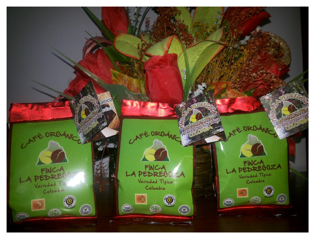
We at SMBC are obviously pleased to have the Tovar family involved in the Bird Friendly coffee program, showing their neighbors and others how sustainable farming practices within an agroforestry system like shade coffee can link conservation to the market place.
Noemi Luz Gomez Vilcas
One of the women producers of Bird Friendly coffee in Peru.
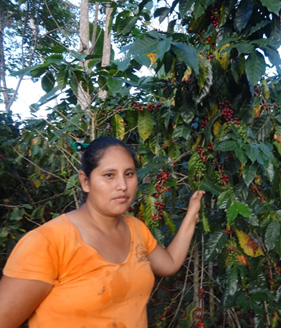
Noemi Luz Gomez is one of many members of the Peruvian coffee cooperative Asociación de Productores Cafetaleros Selva Central (APROSELVA), where she produces Bird Friendly coffee in the community of Santa Cruz (Rio Tambo District, Satipo Province, Department of Junín). As a child she learned all about coffee from her father, who still produces coffee on the family farm. At the age of 24, with some help from her parents, Noemi Luz obtained her own farm—which she named "Roycito". It was six hectares in size with two hectares in the coffee variety "caturra".
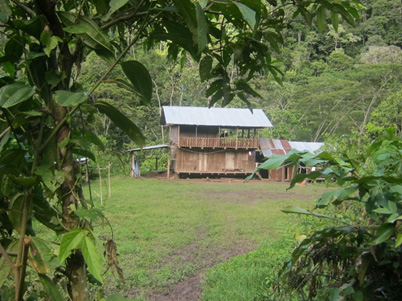
In 2010 at age 29 Noemi doubled her coffee area by planting another two hectares on the farm. A year later, she bought a nearby farm ("Santa Anita"), which added another five hectares of coffee to her holdings. She is one who works the farm, assuring that the organic and Bird Friendly criteria are met through the cultural practices she maintains. Her husband, Javier Marmolejo, works as a taxi driver, helping to support their two children—Ana and Roy (hence the farm name "Roycito"), who are four and seven years old, respectively.
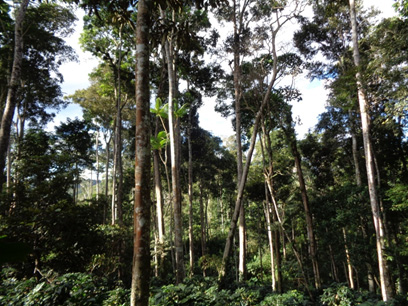
Noemi Luz's attitude toward the Bird Friendly certification: "it helps to maintain our diversity and conserves native forest species, as well as wildlife."
Bird Friendly Honey? How Sweet is That?
The Civil Association Guaya'b has long been involved in the production of Bird Friendly certified coffee—maintaining and protecting viable habitat for migratory and resident birds in and around the town of Jacaltenango in Guatemala's northwestern department of Huehuetenango. The cafetales have a diverse shade tree component, which creates a forest-like setting for wildlife in general (one of SMBC's post-doctoral fellows has shown how Bird Friendly farms in southern Mexico harbor more small mammals than non-BF farms).
And it comes as no great surprise that such agroforestry systems also support honeybees, allowing many of the farmers in Guaya'b to produce an exportable product in addition to the BF coffee. The honeybees are either the introduced "African honeybee", Apis mellifera scutellata, or a hybrid between it and the western honey bee, A. mellifera, both of which produce relatively more honey than the non-hybrid western honey bee. One particularly beneficial aspect of the African genetic component of these honeybees makes them excellent pollinators, potentially helping to increase coffee yields each year.
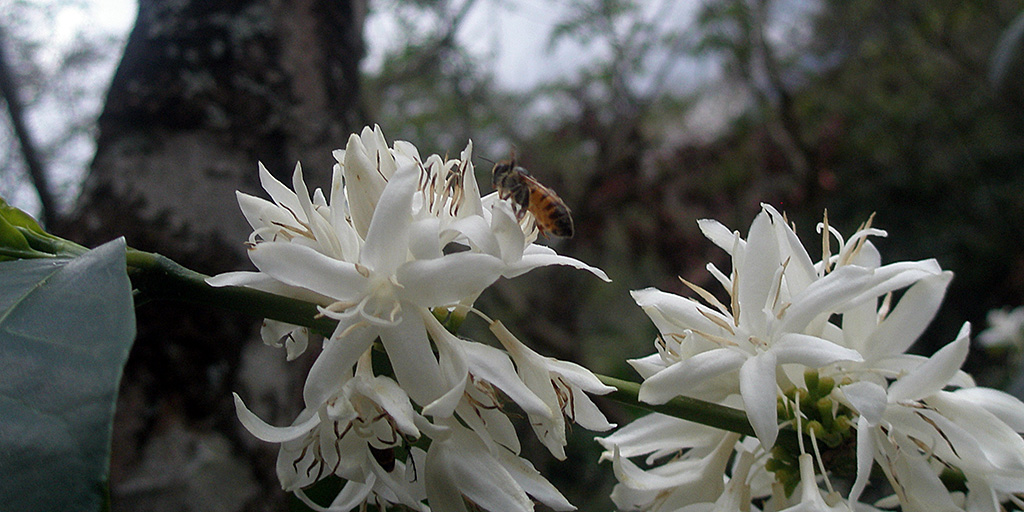
As an organization, Guaya'b was founded in 2000 and gained legal status in 2008. With more than 500 members, about 13% of who are women producers, the coffee is tended on more than 200 hectares of land—most of it managed as agroforestry systems. Scattered within or near the holdings, 207 of Guaya'b's members manage some 8000 beehives. Over the years, with help from researchers at Chiapas's College of the Southern Border (ECOSUR) campus in Tapachula, beekeepers have learned how to manage hives, keep bees healthy, and maintain a quality product.
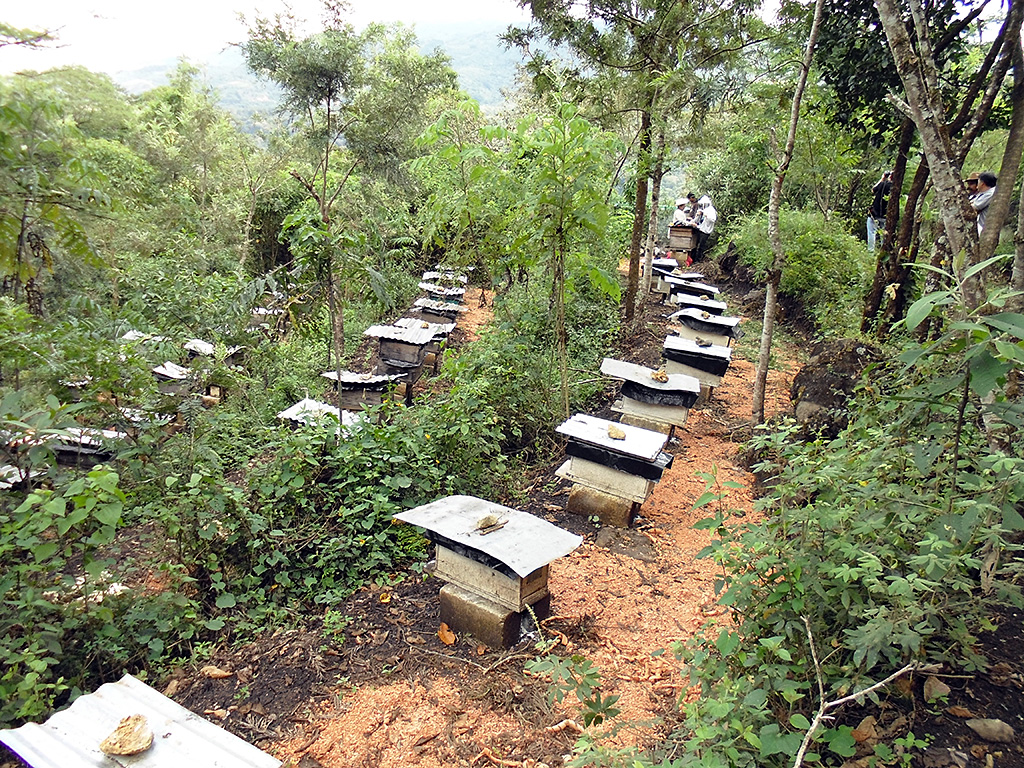
Honey harvested from these hives is stored and transported in metal barrels that hold 300 kgs each of this natural sweetener. The organization now ships seven containers annually to Germany, where the honey samples are analyzed in the labs of QSI (a world-class quality-control lab just outside the city Bremen) for purity, color, moisture content, acidity, etc. Each container holds 20,400 kgs of honey, which means more than 140,000 kgs of this honey has its origin in or near the coffee agroforestry systems of small producers who belong to the Guaya'b organization. QSI ranks the honey as a complex table honey, and it fetches between $3000 and $4000 per ton wholesale—providing these 207 "coffee producers" of Guaya'b with some serious additional income. The countries of Germany, France, Spain, Austria and Belgium form the principal market for the honey.

The diversity of the coffee farms' shade trees means that bees have not only the coffee itself from which to gather nectar, but an array of tropical tree species that shade the coffee bushes beneath them. Interestingly, the genus most commonly used to provide shade in coffee throughout Latin America—Inga—produces lots of nectar over extended periods across the calendar year. As such, the various Inga spp. are important components of the honey. Local oaks (Quecus spp.) and the exotic Grevillea robusta (Australia's "silky oak") also contribute significant amounts of nectar.

But with the help from researchers, Guaya'b also has been able to identify and collect a very special honey associated directly with the coffee. Coffee in this region flowers three times annually, and since the hives are located within or near the coffee itself, Guaya'b markets a limited amount of what it calls "coffee honey"—the main or only nectar source being the coffee flowers. Similar to the "sourwood honey" or "tupelo honey" of the southern US, this coffee honey sells for a bit more than the other honeys derived from a constellation of nectar sources.
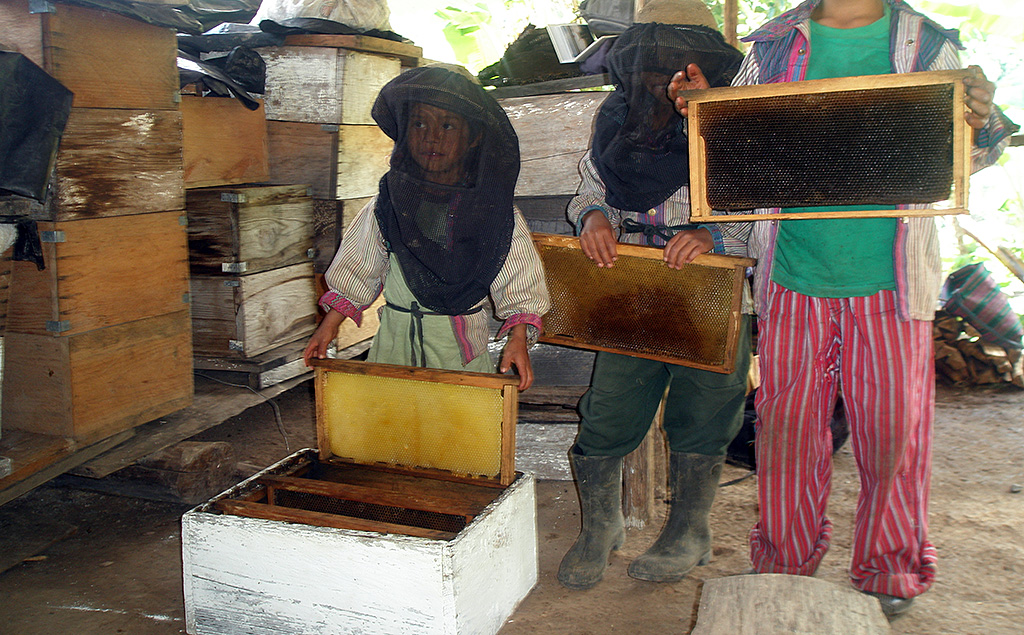
Since honeybees can travel up to 3 km when gathering nectar and pollen, this poses a problem in trying to label any of this honey as strictly coming from the coffee under shade—and hence "Bird Friendly" honey. However, these diverse agroforestry systems that are Bird Friendly certified support honeybees that play a central role in the production of a quality honey. And the bees provide the ecological service of pollination—no small thing for growers depending on higher yields. All of this is powerful testament to yet another benefit of a shade coffee system—a Bird Friendly certified system. That is definitely a sweet story!
Small Coffee Grower Certified Organic and Bird Friendly
SHORT HISTORY OF JOSE ROMALDO HERNANDEZ DIAZ:
I am a small coffee producer. My name is José Romaldo Hernández Díaz and I am 57 years old. I've been a member of Guaya'b for seven years. My wife's name is Gloria Hurtado Delgado, who cares for our house, and we have three daughters.
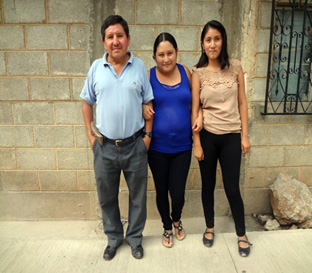
Upon leaving grade school, I started planting coffee at age 13, creating my own nursery. At 14, I planted my first parcel of coffee—three cuerdas (one-eighth of a hectare)—and later some seven additional cuerdas. I continued planting more area until I reached the number of parcels I hold currently.
THOUGHTS ABOUT CERTIFICATION:
Organic coffee sells better than convential and the prices are better. But it does not produce as well as conventional coffee in terms of yields. In my parcels the yields have reached an average of one quintal (100 lbs) of pergamino per cuerda, despite my efforts in good cultural practices.
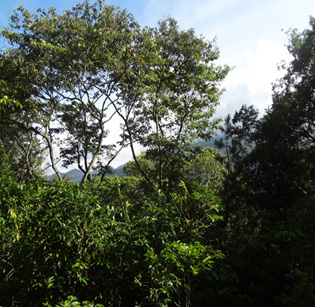
I've noticed that in being certified organic, we are promoting production that is environmentally friendly, involved in management activities focused on soil and water resources, and obtaining a healthy and agreeable environment.
GUAYA'B CIVIL ASSOCIATION, JACALTENANGO, GUATEMALA
Small Coffee Growers Certified Organic and Bird Friendly
Guaya'B Civil Association, Jacaltenango, Guatemala
Short History of Jesús Díaz Ramírez:
My name is Jesús Díaz Ramírez, I am 52 years old and have been a member of Guaya'b for 12 years. I live in the municipality of Jacaltenango (Department of Huehuetenango), where I consider myself a small producer with parcels of coffee that are organic and Bird Friendly certified.
With my wife, Candelaria Cota Ros, who is 48 years old and takes care of our house, we have five children—three girls and two boys.
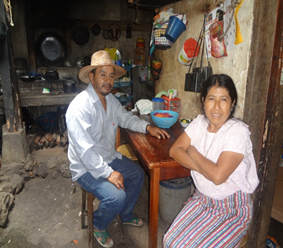
As a boy I would accompany my father to farm in the countryside. We were day laborers in search of ways to better ourselves economically for daily survival. I learned how to use a chainsaw and worked for a long time felling and working with lumber, until an opportunity arose for me to administer a coffee area in a district here in the municipality of Jacaltenango. That job led to my talking with an agricultural technician from the Guaya'b Association, who asked if I had any land suitable for producing coffee. I responded that I did and that awoke my interest in growing coffee, which was aided by technical assistance from Guaya'b.
With my first year's production, I was able to buy another small plot, which I repeated with some successive harvests. Currently I have three parcels of land with a total area of 111 cuerdas (21x21 meter plots)—equivalent to about 5 hectares. These serve as a source of permanent labor, helping to maintain my family and, thank God, have provided me with other blessings I never thought I'd have.
THOUGHTS ABOUT CERTIFICATION:
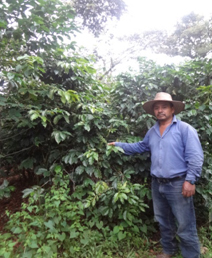
I have noticed that organic fertilizer does not work the same as agro-chemicals. You need to apply lots of organic to obtain good production, and I see that sometimes the price does not compensate for the investment—given that there are lots of costs.
Converting a coffee parcel to organic has resulted in yields a bit lower than conventional practices, and the costs are high.
However, I do see that being organic also helps align the production with the environment. We have established practices for soil conservation and we maintain a good shade cover so that birds and other wildlife have habitat, and for the health of our children who are the producers of the future.
Bird Friendly Producer in Peru's APROSELVA Cooperative: Sr. CONCEPCION ILLANES VICENTE
Producer's History: This cooperative member, Concepción Illanes, belongs to the APROSELVA (Asociación de Productores Cafetaleros Selva Central) organization in the town of Pichanaki, nestled on the lush eastern slopes of the Andes, in Peru's central coffee region in the department of Junín. Born in the high-elevation region (10.000 to 13,000 ft above sea level) of Huancavelica towards the south, Concepción migrated some 30 years ago to the Pichanaki area, where he settled in the "Distrito Belén". His 48 hectare property is a matrix of coffee, plantains, yuca, maize and purma—a secondary successional forest type of habitat left in fallow for five or ten years or more. Only a portion of his coffee area is currently certified as Bird Friendly.
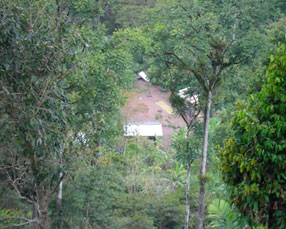
The farm's name is San Lucas. Concepción is well-known in the area for the high productivity he realices from his coffee plots: up to 35 sacks (70 kilos each) of coffee per hectare—far above the global average of about 15.
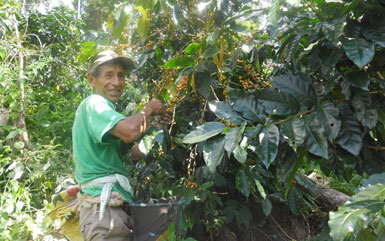
He and his wife Irene Gaspar raised eight children, all of whom are now grown and live elsewhere, leaving the farm work in the hands of this hard-working 73 year-old and his equally impressive spouse! About the Bird Friendly certification that he has, Concepción says: "I am happy to have a plot of coffee good for birds with the Bird Friendly certification, which helps to maintain the diversity of shade trees so that the wildlife and birds have a place to live."
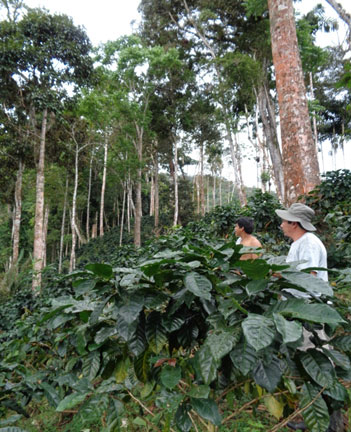
Producer in Honduras from the Capucas Cooperative: COCAFCAL
Here is a profile of one of the Bird Friendly producers. Most are small peasant producers living and working in remote areas managing a sustainable, habitat-protecting agroforestry system that brings a Bird Friendly certified coffee to market. The grit, the pluck and perseverance exhibited by these producers is remarkable. We hope these profiles, which will be changed every month or so, provide you with a better idea of who is involved and the effort behind every cup of Bird Friendly coffee.
Nahúm Estévez has a coffee farm of 3.5 hectares, which is certified Bird Friendly. His wife, Iris Mejía, and his daughter, Dulce María, help him work the farm. He has a special interest in nature and the environment, and moreover wants his children to be able to know and appreciate the diversity of plants and animals in the world. Nahúm is dedicated to good land stewardship, and to acheive this he adheres to practices promoted by certification seals that protect the land and biodiversity—seals like Bird Friendly. "These types of certifications are based on doing things the right way", he says.
As a member of the cooperative Café Capucas in San Pedro de Copan of western Honduras—and as a certified Bird Friendly producer—Nahúm Estévez and his family work to improve their small farm's condition, making it not only a source of quality coffee, but a refuge to wildlife that they appreciate. Their efforts to maintain and improve their coffee parcel to align with environmentally friendly standards creates a coffee that consumers with a like-minded world view can drink with confidence, knowing the coffee comes from a Bird Friendly farm.
